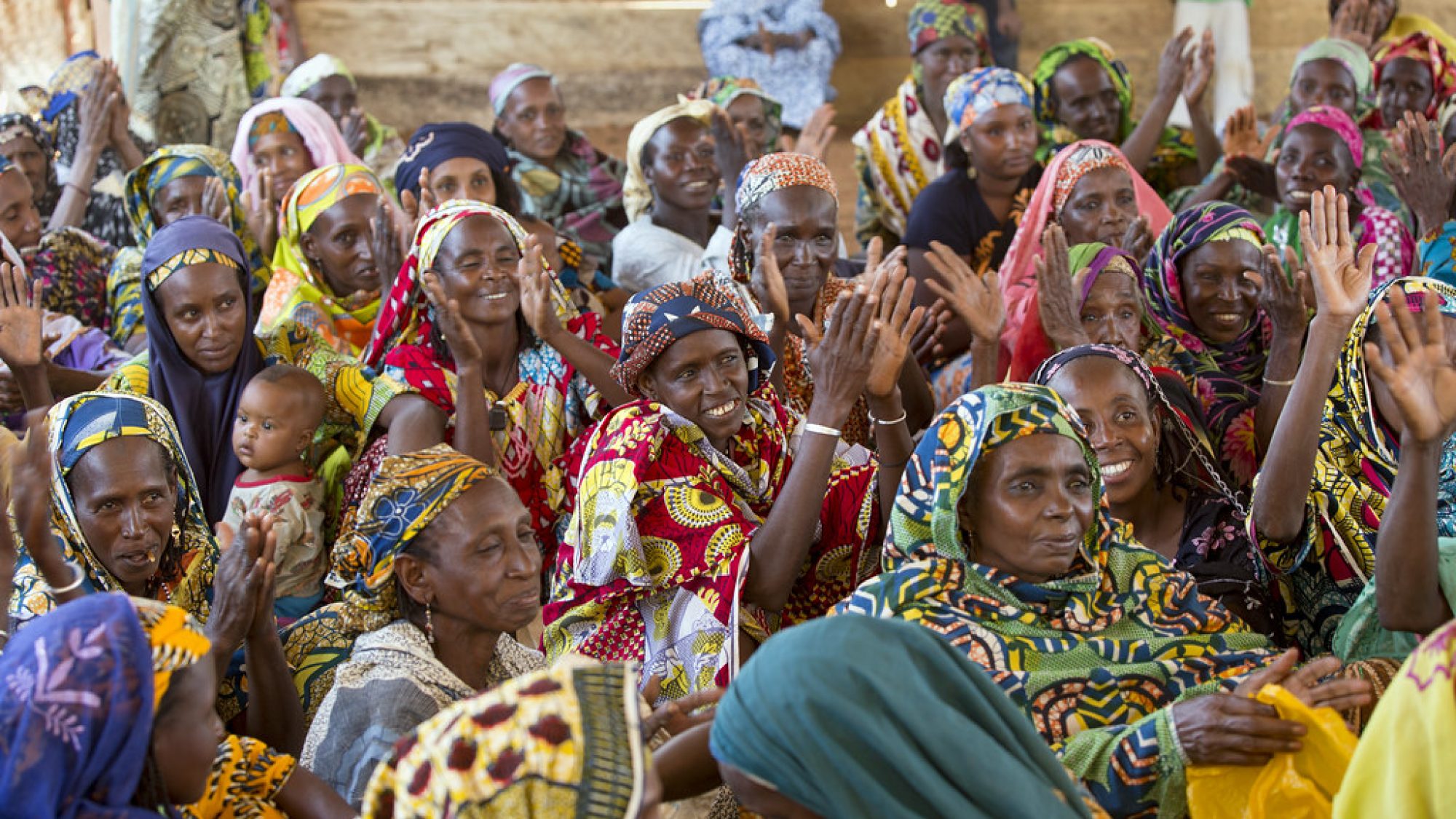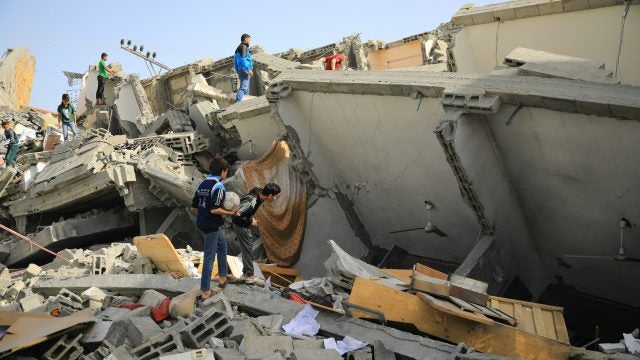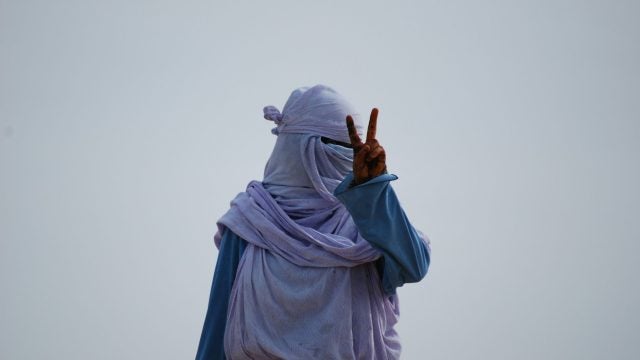
Title: Gender Ideologies, Leadership, and Development in Cameroon
Traditional gender ideologies condition and limit women’s empowerment in Cameroon. These gender ideologies ascribe dominance and powerful positions to men and subservient social positions to women. This binary pairing fails to capture how Cameroonian women collectively and strategically contribute to the advancement of their communities and human rights. This article examines how women as individuals and groups impact development while they challenge these ideologies. Cameroonian government policy should ensure equitable gender representation in decision-making positions, the educational build-up of political capital, leadership and agency among women, and education that dissociates politics and leadership from masculinity.
Women in Cameroon face barriers to attaining leadership positions. These barriers appear both in both physical and ideological space. Physical spaces consist of leadership positions within organizations and ideological spaces are the principles that steer decision-making within those positions. Institutional and structural barriers exclude women from physical spaces while the limits of cultural, intellectual, political, and financial capital in Cameroonian society hinder women’s full and substantive participation within those spaces. Further, traditional and cultural gender hierarchies encourage secondary roles or the near absence of women in leadership positions. National development processes tend to exclude the disempowered half of Cameroon’s population although fairness, diversity and equality are vital for substantive development.
“Women’s empowerment” is a term with contentious implications amongst feminists, especially regarding whether men can “give” power to women. However, many feminists agree on the need for women’s empowerment in Cameroon through the availability of capacities and capabilities. Capacities, or resources, include balanced access to education for girls, the elimination of barriers to credit for women, and the provision of support to women-led entrepreneurial initiatives. Capabilities, or agency, must simultaneously counter misogynistic cultural beliefs, such as that women should not or are not competent to head families, political organizations, or businesses. These discourses stigmatize women and prevent them from leading formal institutions and establishments, despite their demonstrated leadership in non-formal contexts within health, social, and agricultural sectors. Empowerment of women through capacities and capabilities therefore rejects individualized empowerment as a solution in favor of structural and systemic change that enables women to achieve their potential.
Women in Decision-Making
Decision-making spaces in Cameroon are overwhelmingly patriarchal. Women made up only 33 percent of the parliament in 2020, although this represents progress from 11 percent in the early 2000s. These figures are directly related to women’s rights and national development, but the increase in parliamentary participation is more descriptive than substantive. A 2009 study showed that women took up less than 5 percent of the total talking time in parliament. In Cameroon’s academia, women make up only about 26 percent of the faculty, including less than 10 percent of professors and only about 18 percent of the administration.[1] Monique Kwachou, a Cameroonian feminist scholar observes in her dissertation that even when women attain certain capacities such as financial empowerment and education, capabilities counter to misogynistic ideas are still needed to promote women’s agency within Cameroonian institutions.[2] Hegemonic ideological spaces sustain women’s effective powerlessness even when their resources allow them to be in performative positions of power.
Gendering Ideologies
Traditional gender ideologies presume that if women are disempowered (through the absence of capacities and capabilities), they will not challenge male dominance.[3] Empowered women, even those in decision-making positions, have little political impact because customary gender frameworks strip these women of the required agency and cultural capital which enable them to bring about meaningful change. Empowerment must instead use a multidimensional approach that uproots gendered ideologies and promotes fair resource availability. These two vital ingredients of empowerment—capacity and capability—contribute to the social and political development of women in Cameroon.
Women’s Agency—Creating Development Impact
Mainstream development discourses tend to only measure women’s empowerment through socio-economic indices, a simplification that encourages women to be positioned as disempowered victims rather than resilient and active agents of change. In contrast, Constance Awinpoka Akurugu observes that “agentic practices are theorized in more fluid terms than the binary pairing of agent/victim debates permit.” Within gendered discourses women’s empowerment should be reflected through the attainment of agency and socio-economic empowerment, or the degree to which women create change in decision-making positions and politics.
In a fragile state like Cameroon, there is little state assistance for education, agriculture, and infrastructure, and even less for healthcare and nutrition. To make up for this, micro-economic activities like small businesses (locally called buyam/sellam—women who buy and sell foodstuff on a daily basis, earning a small profit, and keeping the markets going) and civil society organizations powered, led, and propelled by women sustain the economy, development, and living standards of Cameroon. While unacknowledged as community leaders in healthcare provision and humanitarian services, Cameroonian women power wellbeing within the Cameroonian economy and society using collective agency. The role of women in health, social services, and agriculture cannot be underestimated.
Public policy has so far failed to recognize and encourage these women’s role in development. However, the burgeoning women-led civil society organizations (CSOs) in Cameroon are shaping the narrative of women’s agency and inclusion of women’s voices in decision making (even if only at lower levels). Pressure CSOs in Cameroon such as More Women in Politics mobilize women by offering political education and assisting their enrollment in electoral registers. Reach Out Cameroon, Common Action for Gender, the South West and North West Women’s Taskforce (SNWOT), and other CSOs show how women-centered leadership provides humanitarian responses and peacebuilding initiatives during conflict, as well as leads social and health campaigns during COVID-19. These groups give direction to vulnerable populations by assisting internally displaced persons (IDPs) during the ongoing armed conflict in the English-speaking North West and South West regions of Cameroon, and the Northern parts of Cameroon.
Policy Recommendations
The number of women in Cameroon’s parliament increased sharply in recent decades because a modification of the electoral code specified electoral lists must be gender sensitive. If the clause was modified to include a specific quota (e.g., 50 percent), the increase in the number of female representatives would be far more dramatic. At a substantive level beyond representation, the government and civil society organizations should engage in active leadership education through the creation of leadership institutes to build political capital among women that validates their agency and leadership. Such institutions would create more opportunities for women to form ideological capital, leverage their leadership, and acquire much-needed political education.
The introduction of a curriculum for Cameroonian youth that dissociates politics and leadership from masculinity would also substantively improve women’s political education. Women’s civil society and community spaces would buttress female leadership by directly encouraging women to take up physical and ideological spaces of power. A greater recognition and valorization of women’s civil society organizations and their contribution to development by the government would build this much needed social and political capital.
Conclusion
While women as individuals in Cameroon lack the agency to make meaningful differences in human rights and women’s inclusion in politics and development processes, women together in groups have much more power to effect change. Construing women’s empowerment as consituted by the number of female appointees or elected figures in powerful Cameroonian organizations misrepresents the true nature of the impact of women’s leadership in Cameroon. Collectively, women self-organize for broader community goals rather than individual outcomes. Cameroonian women’s organizations primary areas of intervention address hunger, poverty, and gender-based violence. They foment resilience during conflict and are at the forefront of providing humanitarian assistance to IDPs and refugees of war.
Limited public and formal understandings of space, leadership and power fail to capture the meaningful contributions Cameroonian women make to the development and human rights of their nation when they are empowered by alternative leadership structures with appropriate financial, material, and intellectual resources. Cameroonian women do not passively wait for institutions to offer leadership positions to them but construct their own empowerment with resources and agency.
[1] Atanga, Lilian Lem, A gender inclusive university governance: An analysis of the University of Bamenda. (Bamenda: University of Bamenda, 2018). MBA Dissertation.
[2] Kwachou, Monique, Exploration into the influence of studying women and gender studies on past and present students of the University of Buea. (London: University College London MA Dissertation,, 2015).
[3] Djimeli, T. A. and Atanga, L. L., “La communication des universités au Cameroun dans un contexte concurrentiel complexe.” Journal of Arts and Humanities (University of Bamenda) 1, no. 1 (May, 2018,): 72 – 89.
…
Lilian Atanga is an Associate Professor at the University of Dschang, Cameroon and a research fellow at the Center for Gender and African Studies, University of Free State, Bloemfontein, South Africa.
Image Credit: “UN Women Humanitarian Work with Refugees in Cameroon” by UN Women Gallery is licensed under CC BY-NC-ND 2.0
More News

This piece examines the UK government’s proscription of Palestine Action under the Terrorism Act, situating it within a broader trend of shrinking space for public dissent. It argues that the…

This article analyses the distortions of the International Humanitarian Law (IHL) notion of proportionality in the context of the Israel-Gaza war. It discusses Israel’s attempts to reinterpret proportionality to justify…

The escalating women’s rights crisis in Afghanistan demonstrates a gap in international legal protections of the rights of women and girls. The international community should fill this gap by making…